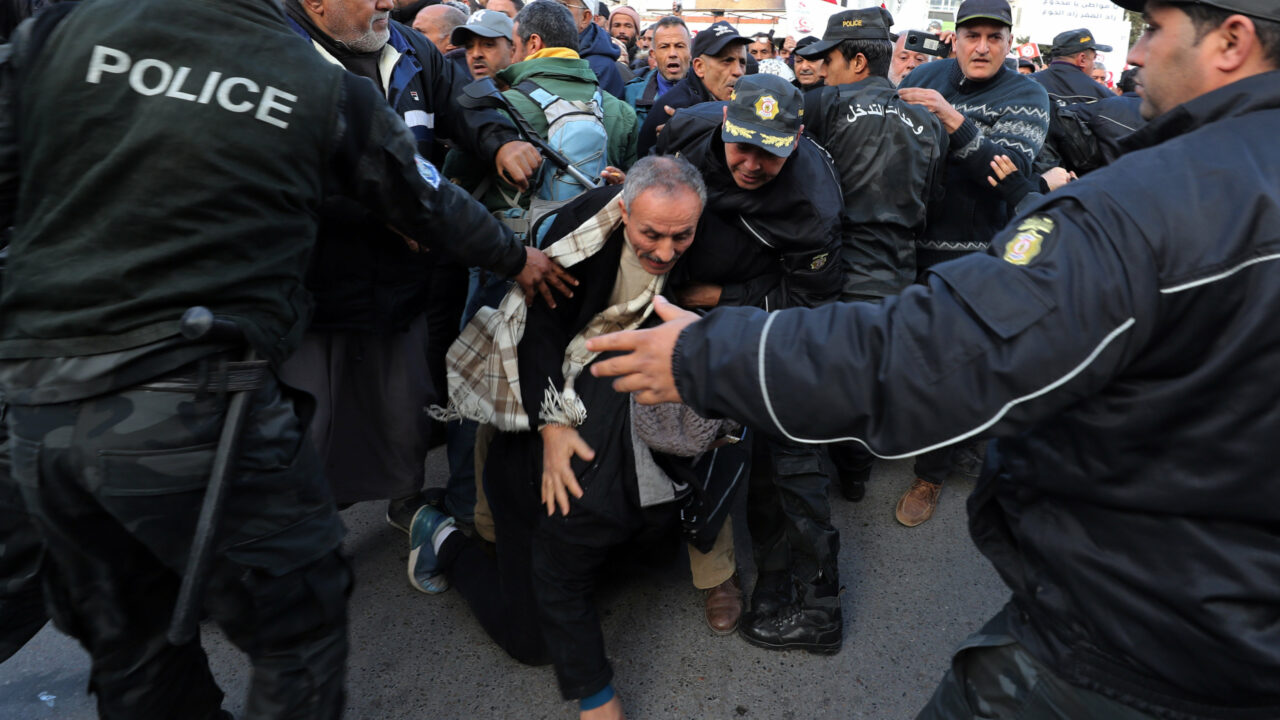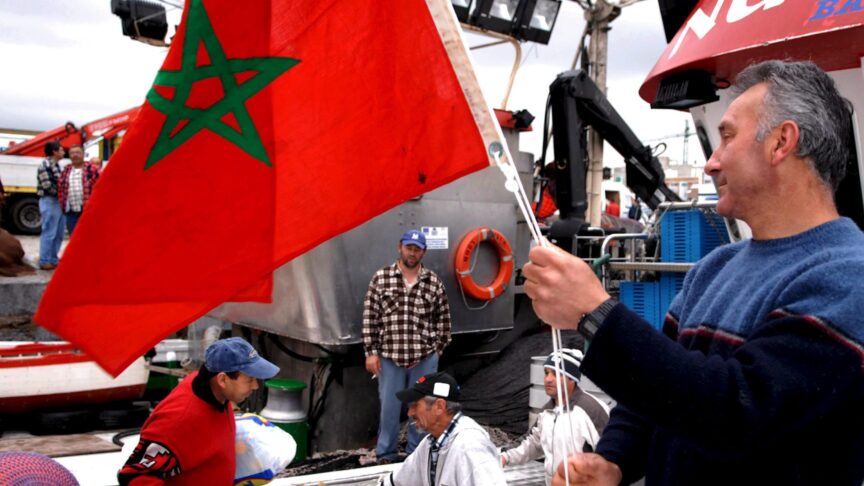Saied’s crackdown: How the EU can stand up for human rights in Tunisia
The EU has invested heavily in Tunisia’s transition to democracy since 2011. Now it must stand up for the rule of law and for the rights of those under threat
Last autumn, a member of the Tunisian opposition predicted to me that the country’s president would launch an intensified crackdown on his critics once a new parliament had been elected. “You haven’t seen anything yet,” the politician warned. These words proved all too accurate. Tunisia’s parliamentary election concluded in January and, since then, President Kais Saied has arrested many of the most prominent people who have spoken out against his increasingly authoritarian rule.
Elected as president in 2019, Saied conducted a power grab in July 2021 by suspending Tunisia’s parliament. In the period that followed, he has steadily dismantled all the checks on his authority. Last summer, he rewrote Tunisia’s post-revolutionary constitution to construct a hyper-presidentialist system, with a rubber-stamp parliament and a judiciary under executive control. The constitution was approved through a much-criticised referendum with a miniscule turnout. The new constitution and subsequent parliamentary election marked the end of the period of exception that began when Saied suspended parliament. Now a new political system with an unaccountable and all-powerful presidency is in place, and Saied has wasted little time in showing how he intends to use that power.
In the last few weeks, Saied’s regime has arrested a range of people from across the spectrum of opposition politics as well as influential business leaders and lawyers. The list of people who have been taken in, according to statements issued on their behalf, includes many of those who have been most prominent in opposing Saied and who have the most extensive international contacts. Among them are: Jaouhar Ben Mbarek, leader of the group Citizens against the Coup and a key member of the National Salvation Front; Khayam Turki, a former finance minister; Issam Chebbi, leader of the Republican Party; Nourredine Bhiri and Said Ferjani of the religiously orientated Ennahda party, as well as former Ennahda member Abdelhamid Jlassi; and Ghazi Chaouachi of the Democratic Current party.
Security forces have also arrested lawyer Lazhar Akremi; Noureddine Boutar, director of the popular radio station Mosaique FM; leading trade unionist Anis Kaabi; and businessman Kamel Ltaif. In all, well over a dozen of the most influential opposition figures are known to have been detained.
Neither the interior ministry nor prosecutors have given any official explanation for the reasons behind the arrests. But in a speech delivered after the first arrests, Saied talked of cracking down on “terrorists” and “traitors”. He also charged that “a number of criminals” had been “conspiring against the internal and external security of the state”, including by raising the price of foodstuffs at a time of national shortages. In a later statement, Saied warned that anyone who dared to exonerate those he had charged “is their accomplice”, apparently presaging further moves against lawyers and revealing his views of judicial independence. The scapegoating of his opponents and inflammatory rhetoric are characteristic of Saied’s populist instincts, also evidenced recently by his attacks on migrants from sub-Saharan Africa.
Information about the charges being developed against those arrested has come primarily from statements and interviews by their lawyers. Already some of those arrested have appeared before an anti-terrorism investigative judge, charged with conspiring against the security of the state. Others, such as Boutar, are charged with financial crimes – but according to his lawyer, his questioning focused on the anti-Saied editorial line that his radio station has taken. In several cases, according to lawyers for those detained, authorities have quizzed political activists about their contacts with foreign officials. Turki was apparently questioned about a visit by foreign diplomats to his house, and Jlassi was asked about meetings with foreign researchers. Saied’s regime has also acted directly against European officials, such as expelling the European trade union chief Esther Lynch after she attended a union protest. Saied warned foreign diplomats not to interfere in Tunisian affairs, saying, “We are not under colonisation, we are an independent sovereign country.”
It would be an act of weakness to duck the challenge to Tunisia’s partners that Saied has laid down
The EU has invested heavily in Tunisia’s transition to democracy since 2011. Now, as fundamental freedoms come under attack, it should stand up for the rule of law and for the rights of those who face prosecution for highlighting the political situation in their country. It would be an act of weakness to duck the challenge to Tunisia’s partners that Saied has laid down. Some EU member states have expressed concerns about the recent crackdown. A French official called on Tunisian authorities to ensure that individual liberties and civil liberties were respected, while a German spokesman said his government “views with great concern that many representatives of the Tunisian opposition, politicians, journalists and activists have been arrested in recent days.” The European Commission said in the early days of Saied’s crackdown that it was following developments with concern and that “respect for the right to a fair trial and due process requirements, including judicial transparency” were crucial.
The accelerating repression in Tunisia calls for a stronger and more high-profile response. The Foreign Affairs Council will discuss Tunisia at its next meeting on 20 March. The European Union should use the occasion to issue a clear and forceful statement condemning the abuse of judicial power to curtail freedom of speech and to call for a return to the rule of law. The crackdown in Tunisia comes at a time of mounting economic crisis and a rising tide of migration from the country to Europe, particularly Italy. The EU should continue to support Tunisia financially, for the sake of its people and in the interests of stability. Economic cooperation serves the interests of Tunisian authorities, so they will not cut ties with Europe if the EU adopts a more critical line. Saied has shown that he will continue to push forward with centralising power and curtailing political freedoms unless he encounters resistance. The EU cannot decide the nature of Tunisia’s governance, but it should at least offer an accurate description of what is taking place. It could also review specific programmes of cooperation, such as with the judiciary, which has lost any vestige of independence. Under a president who seems to have no meaningful plan to tackle the country’s multiple economic and social problems, Tunisia is likely to face further turbulence in coming months. The EU should do everything it can to help Tunisia towards a stable future under an accountable and legitimate government – and that starts with sending a clearer signal at a moment of crisis for civil and political rights in the country.
The European Council on Foreign Relations does not take collective positions. ECFR publications only represent the views of their individual authors.



